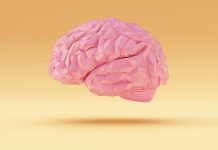
A new study by researchers at RCSI University of Medicine and Health Sciences in Ireland suggests that information available at birth could help identify children who are more likely to develop ADHD.
The study examined data from almost 10,000 children in the United States who were enrolled in the Adolescent Brain Cognitive Development (ABCD) study.
This ongoing study includes children born between 2005 and 2009 and aims to investigate the factors that contribute to brain development in childhood.
The RCSI researchers identified 40 factors related to pregnancy and birth, such as the sex of the baby, age of the parents, and any complications during pregnancy or delivery, that could be useful in predicting ADHD symptoms in childhood.
Using machine learning and statistical techniques, the researchers found that 17 of these factors were particularly good at predicting the number of ADHD symptoms in childhood.
While the study only explained up to 10% of the variation in childhood ADHD symptoms, it highlights the potential of prenatal and birth information in identifying children who may be at higher risk of developing ADHD.
Factors that stood out in the study as being useful in predicting ADHD symptoms in childhood included being male, exposure to factors such as cigarette smoke and recreational drugs while in the womb, and the mother having urinary tract infections or low levels of iron.
Lead researcher Dr. Niamh Dooley explained that few studies have looked at how prenatal and birth information could be useful in predicting ADHD.
This study focused on readily available information about pregnancies and births, ensuring that the results can be compared to other studies using medical records and that they are relevant to public health.
Professor Mary Cannon, co-lead researcher, noted that the next step would be to carry out a study in a group that has been followed in real-time through pregnancy, birth, and childhood.
This would boost confidence in the prenatal information and its ability to help identify children at risk of developing ADHD at an early stage of life.
While the study’s findings may be useful in identifying children who may be at higher risk of developing ADHD, it is important to note that birth information alone cannot predict who will develop the disorder.
However, it may help identify which children are most in need of support, particularly when combined with other factors like genetics or family history and the early life environment.
How to spot ADHD early
The symptoms of ADHD can become apparent as early as preschool age, and early diagnosis and treatment can lead to better outcomes for children. Here are some signs that may indicate a child has ADHD:
Inattention: Difficulty paying attention, easily distracted, struggles to complete tasks, forgetful
Hyperactivity: Constant fidgeting, inability to sit still, excessive talking, difficulty waiting their turn
Impulsivity: Interrupting others, blurting out answers, acting without thinking about the consequences
If you notice these symptoms in your child or a child you know, it’s important to talk to their healthcare provider.
They can refer you to a specialist who can conduct a comprehensive evaluation and diagnose ADHD. It’s also important to note that not all children with ADHD display the same symptoms, and symptoms may vary in severity.
Therefore, a proper diagnosis should involve a comprehensive evaluation of a child’s behavior and medical history, including information about pregnancy and birth, as well as observations from parents, teachers, and caregivers.
Early identification and intervention can lead to better outcomes for children with ADHD, so if you have any concerns, don’t hesitate to seek help.
If you care about health, please read studies about vitamin D that may hold the clue to more autism, and vitamin D could help lower the risk of autoimmune diseases.
For more information about health, please see recent studies about rare blood clots after COVID-19 vaccination, and scientists confirm a primary cause of Alzheimer’s.
The study was conducted by Niamh Dooley et al and published in Development and Psychopathology.
Copyright © 2023 Knowridge Science Report. All rights reserved.



